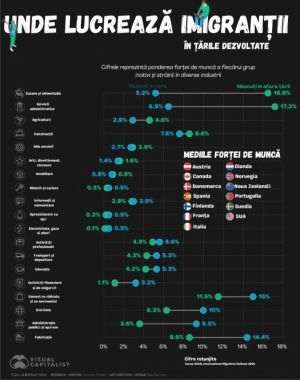The European Central Bank (ECB) will follow the services sector very closely for the next monetary policy decisions, warned the president of the institution, Christine Lagarde, in an interview granted, on Friday, to the French channel BFM Business, part of the BFM TV group.
Christine Lagarde said: "Our further decisions, whatever they are, will be driven by numbers. We will be watching very carefully what is happening, especially the service sector (...) regarding the workforce, a sector where wages are a determining factor. We know that wages in the Eurozone, especially in Germany, have been raised, will remain high for the rest of 2024 and will start to fall, settle down in 2025. So we will be very attentive to all the figures on wages, services , to productivity and profit, before future monetary policy decisions".
His Lordship stated that from the ECB data it appears that part of the companies' margins will allow the absorption of wage increases, thus preventing a repercussion on prices, thus avoiding the intervention of a new inflationary spiral scenario.
Regarding the decision taken by the Governing Council on Thursday, to cut the benchmark interest rate by 0.25%, Christine Lagarde said that the ECB experts analyzed a lot of data to try to formulate the most accurate projections possible for this year and the following years following, the projections on the basis of which the Board of Governors takes the necessary decisions.
The President of the ECB said: "We are talking about a huge complex of tools and analyzes that make it possible to arrive at the most accurate projections, and in this sense I show that the projections have not always been accurate, because in the past we have made serious errors due to a huge degree of uncertainty. At the moment, our experts use a number of models that help us corroborate all the analyzes performed and all the data sets. We are obliged to analyze all the data and anticipate the impact that this data will have on economic activity, on inflation, on employment, on all macroeconomic fundamentals."
Mrs. Lagarde mentioned that, after the analyzes carried out, the ECB establishes various scenarios: "We imagine the hypothesis in which, for example, wages would increase significantly more than we thought. We imagine the hypothesis of a significant increase in energy costs, etc.".
Despite this complex activity, the ECB was very cautious about continuing its action, even if inflation falls again in the Eurozone, because, according to Lagarde, "the coming months will continue to be eventful", which keeps the financial institution- banking on guard regarding rate policy. She added that there are "obstacles down the road that could surprise us and the magnitude of which we don't know."
In the context of the European elections, which were to take place on Sunday, June 9, Christine Lagarde stated that the ECB "is not a political institution".
The President of the ECB said: "It is an institution that has a mandate. This mandate is enshrined in the European treaties, and the independence enjoyed by the European Central Bank is linked to the nature of its mandate. We have a task entrusted to us from the European level, but we are independent. This melange between objectives and independence is what allows a central bank like the ECB, but also other central banks in the world, to commit to what is right for their fellow citizens and what we owe to all Europeans: price stability".
We remind you that last Thursday the Governing Council of the ECB decided with 0.25% of the three representative interest rates of the ECB. Accordingly, the interest rate on the main refinancing operations and the interest rates on the marginal lending facility and the deposit facility will decrease to 4.25%, 4.50% and 3.75%, respectively, from 12 June 2024. In the same meeting, the Board of Governors confirmed that in the second half of the year it will reduce the portfolios of securities held by the Eurosystem under the pandemic emergency purchase program (PEPP), on average, by 7.5 billion euros per month. The ways of reducing holdings in the PEPP will be broadly consistent with those applied in the asset purchase program (APP).
On Friday, the European Central Bank updated its dataset of structural financial indicators for the banking sector in the European Union (EU) for the end of 2023. This annual dataset includes statistics on the number of premises and employees of credit institutions in the EU, data on the concentration of the banking sector in each member state and data on foreign-controlled institutions operating in the EU. Structural financial indicators show a further decrease in the number of bank branches in the EU, with an average of 3.09% in the Member States. Decreases were seen in 24 of the 27 countries, ranging from -0.17% (Spain) to -12.46% (Belgium). The total number of bank branches in the EU was 129,418 at the end of 2023, of which 82.2% were located in the Eurozone.
During 2023, the number of bank employees decreased in 15 of the 27 member states, with the average staff reduction being 0.81% across all EU countries. The decrease in the number of employees in the banking system started in 2008, but seems to have stabilized in 2023, it is stated in the press release issued by the ECB on Friday.
The data also show that the degree of banking sector concentration (measured by the share of assets held by the five largest banks) continues to vary considerably between EU Member States. At national level, the share of total assets of the five largest credit institutions varied from 32.34% (Luxembourg) to 95.58% (Greece) at the end of 2023, while the EU average was 68.6% .





























































